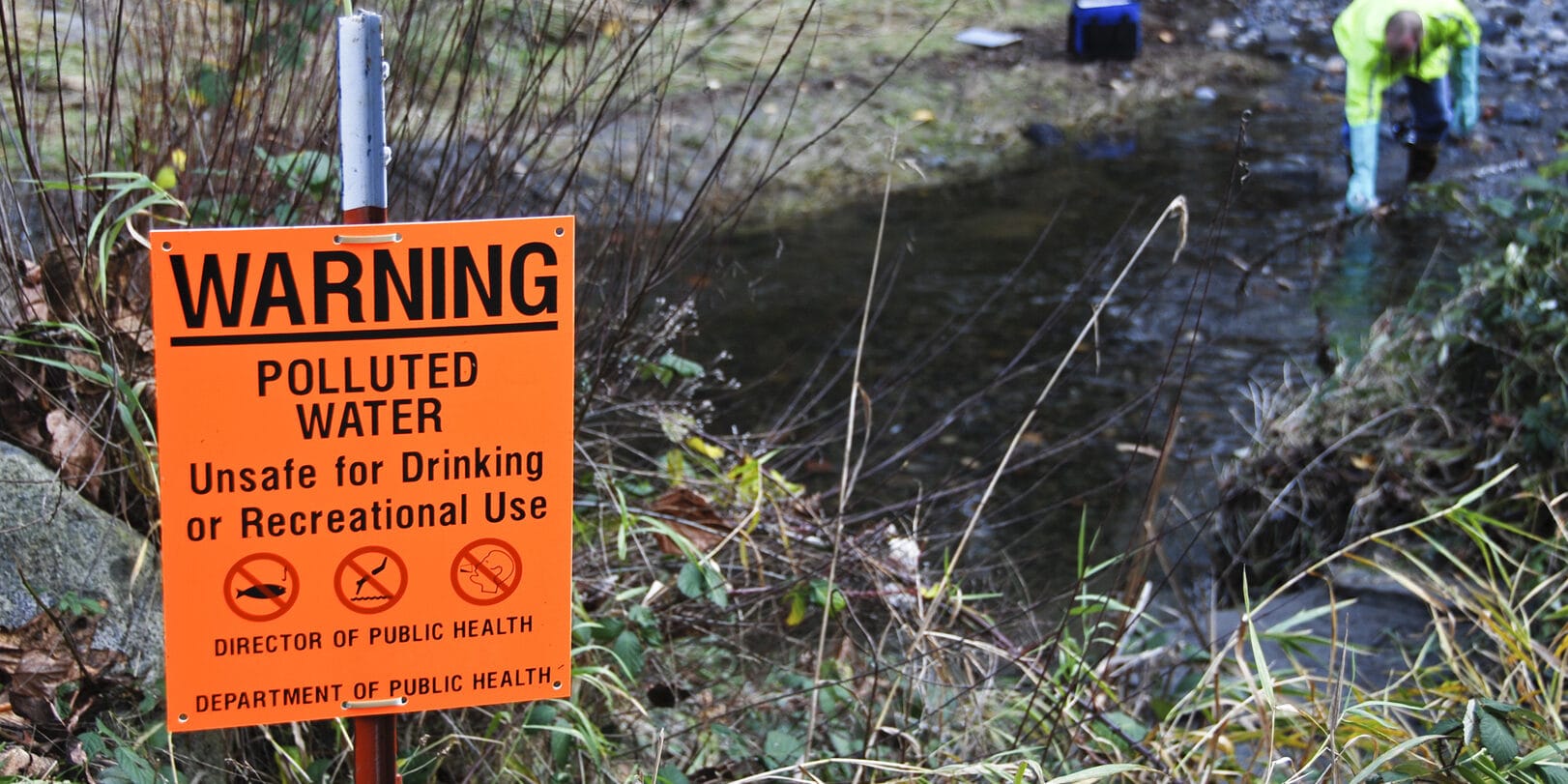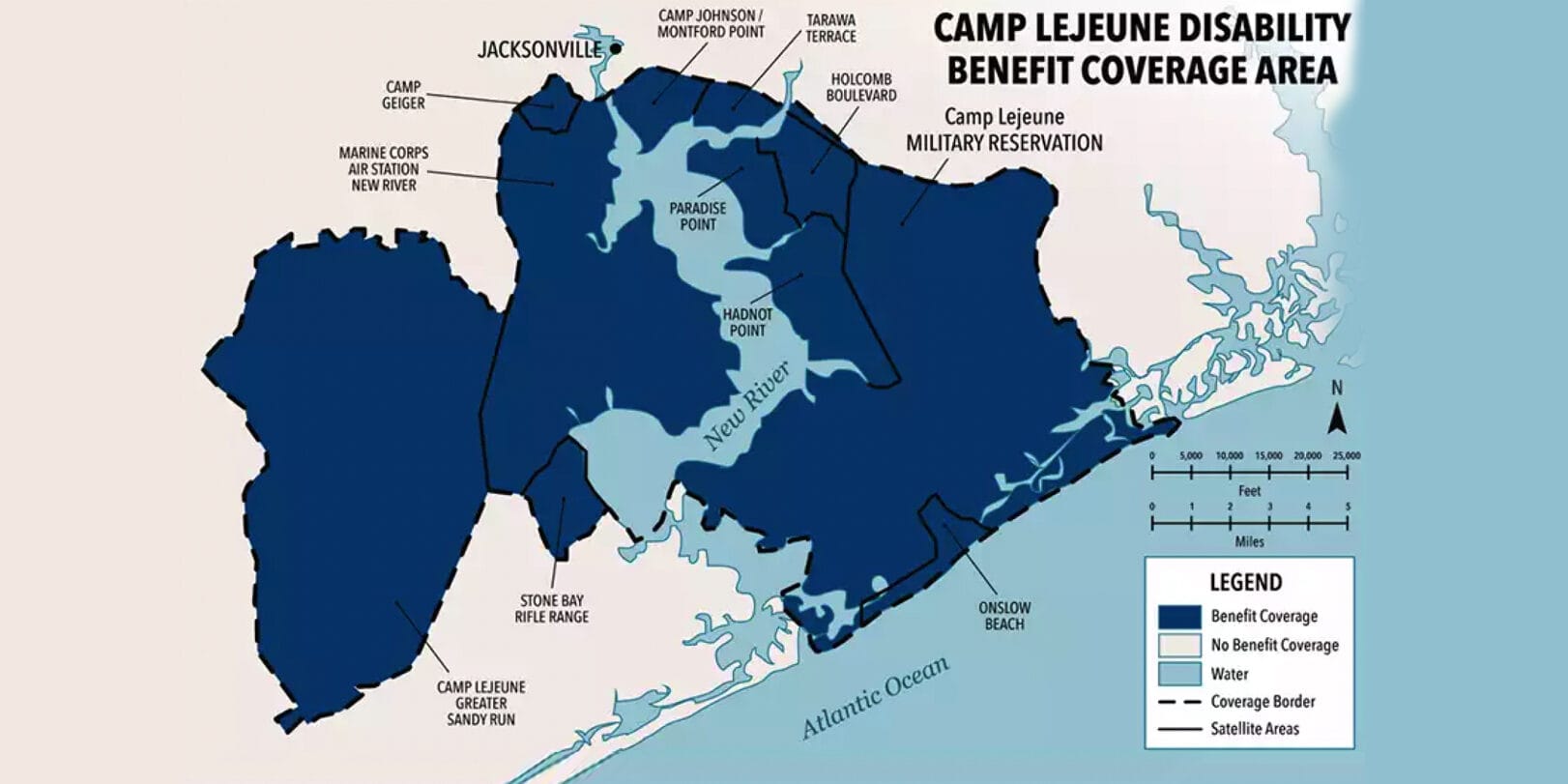On August 2, 2022, the Senate voted to pass the Honoring Our PACT Act by a vote of 86-11. This bill includes the Camp Lejeune Justice Act. The Camp Lejeune Justice Act allows for anyone who lived or worked on the Camp Lejeune Marine Corps Base for at least 30 days between August 1, 1953 and December 31, 1987 and who were exposed to the toxic water at the base to file a claim against the U.S. government.
In the early 1980s, two water-supply systems on the Marine Corps Base Camp Lejeune in Onslow County, North Carolina were found to be contaminated with the industrial solvents trichloroethylene (TCE) and perchloroethylene (PCE).
Military service members and civilians who lived or worked on this base between 1953 and 1987 ingested contaminated drinking water and bathed in water that had been contaminated with chemicals from the base water treatment facilities and a dry-cleaning company in the area. Individuals were exposed to over 3,000 times the safe exposure limits of toxic chemicals. These chemicals included volatile organic compounds (VOC), including trichloroethylene (TCE) and tetrachloroethylene (PCE); as well as benzene; trans-1,2-dichloroethylene (DCE); and vinyl chloride.

The industrial chemicals that were contaminating the Camp Lejeune water supply are known to be highly toxic to the human body and have been linked to cancer, birth defects, and neurologic disorders. Scientific and medical evidence has shown that chronic exposure to the chemicals TCE and PCE can cause increased rates of certain types of cancer.
The types of cancer that have been scientifically linked to the consumption of harmful chemicals contaminating the water at Camp Lejeune include:
Exposure to these chemicals has also been linked to other health conditions including aplastic anemia (and other myelodysplastic syndromes) and neurologic disorders such as Parkinson’s disease.

Scientific and medical evidence continue to find links to other injuries besides cancer. They include:
Birth defects are one of the big tragedies of Camp Lejeune. Between 1953 and 1987, thousands of pregnant women were exposed to toxic water at Camp Lejeune. In 2013, the CDC released the results of a study confirming that children who were born to mothers that lived on Camp Lejeune or drank the water supply had four times the rate of birth defects such as spina bifida.
The CDC also indicated that children who were exposed to the contaminated Camp Lejeune water during fetal gestation had an increased risk of developing childhood cancers like leukemia. These same children may also end up having a higher risk of adult cancer.
Volatile organic compounds were detected at the U.S. Marine Corps Base Camp Lejeune in 1982 and traced to drinking water coming from two of the eight water treatment plants on the base. The U.S. Department of Veterans Affairs (VA) reports that from 1953 to 1987 the systems that supplied drinking water to two housing areas were contaminated with industrial chemicals. During this period, close to 9,000,000 service members were potentially exposed to this harmful water, according to the VA, making Camp Lejeune one of the worst cases of water contamination in U.S. history.
Several base housing areas were affected by the contamination, including:
The VA provides the following map highlighting the disability benefit coverage area:

If you think you have been victimized by the Camp Lejeune toxic water contamination you may be entitled to fair compensation. Contact DeGaris Law today for a free consultation regarding your legal rights with a Birmingham personal injury lawyer.
"*" indicates required fields